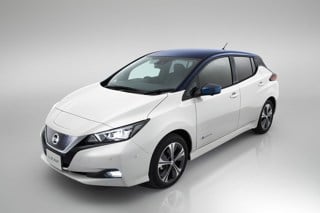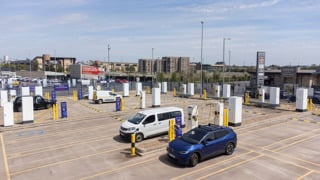The ramp up of plug-in vehicle adoption could falter if new mines are not discovered that contain the vital ingredients for lithium-ion battery production.
Cobalt is a key material for ‘long run’ electric vehicle (EV) batteries that require higher performance characteristics (energy density, battery life and stability).
Trent Mell, president and chief executive of Canadian-based First Cobalt Corp, a company set up specifically to mine for cobalt, said the mineral’s scarcity is set to upset the supply chain for car manufacturers as it makes up a key part needed by lithium-ion batteries used with pure electric and hybrid vehicles.
Prices for cobalt have doubled in the past two years to $30 (£23) a pound. But this has only added approximately $180 (£136) to the price of a battery per vehicle. Mell says there is a deficit in production that will continue until at least 2025 and can only be solved by new mines.
He told Fleet News that if these mines are not discovered, manufacturers will not be able to fulfil their EV production ambitions.
Mell said: “Cobalt mining always used to be secondary as a by-product from mining for copper and nickel, but such is the demand globally for EV production that there is now a rush of 100 companies looking for new discoveries specifically focusing on cobalt as the main property.”
Mell said the lack of supply would not immediately impact plug-in vehicle prices in a “big way” as £136 to the cost of a £30,000 is not a huge increase, but for manufacturers it is going to cause a problem in their supply chain and push down the scale of manufacturing.
The very latest battery design prevalent in cars like the latest generation Nissan Leaf is called ‘811’. They offer more range and power, and require less cobalt than previous designs. However, cobalt still represents 10% of a battery’s cathode material (the rest being 80% nickel and 10% manganese).
For all current EV production, most batteries still need a higher percentage of cobalt in their make-up.
Mell said that regardless of how quickly EVs take hold as a mainstream vehicle choice, the fact governments and manufacturers are moving towards zero-emissions capability will mean the search for new cobalt deposits is vital.
Most major manufacturers have either already launched EVs, have pledged to offer plug-in versions of every model range or are investing millions to catch up with the technology pioneered by the likes of Toyota, Nissan and Tesla.
According to the International Energy Agency, more than 750,000 plug-in vehicles were sold globally last year. Recent figures from Go Ultra Low show UK EV demand accelerating in the third quarter of this year, with 12,932 plug-in models registered, a 36% increase year-on year.
Record uptake has pushed the national total of plug-in cars on UK roads to more than 120,000, meaning EV sales now make up 1.7% of new car registrations.
Reg Spencer, a mining analyst at Canaccord Genuity, predicts cobalt demand will increase by 90% over the next eight years as a result EV production. The shortfall, he says, can partly be offset by lithium-ion battery recycling or substituting materials, but this would not help until the mid-2020s.
Currently, 40% of global cobalt production is controlled by two companies – Anglo–Swiss Glencore and the China Molybdenum Company, a Chinese state-run business.
The Democratic Republic of the Congo (DRC), Central African Republic and Zambia yields most of the cobalt mined worldwide. The DRC takes a 65% share of the market globally and the political and human rights problems there make mining long-term an unstable prospect.
Spencer said the supply of cobalt in the DRC is coming under increasing scrutiny following a 2016 Amnesty International report which highlighted human rights abuses in the country’s mining sector.
First Cobalt Corp is focusing on mines in Canada and Idaho, USA, while there is exploratory work by other organisations taking place in Australia, Morocco, Scandinavia and Chile.
While there may be a deficit in cobalt production right now, Mell is confident new discoveries will be made.
Mell said: “While there is going to be a gap in supply, some manufacturers like Volkswagen have already made deals for peace of mind to fulfil their production ambitions.”




















Login to comment
Comments
No comments have been made yet.